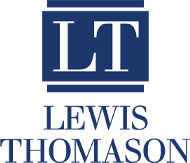When the term “blow the whistle” started catching on, it found roots in sports referees blowing their whistles due to fouls and other infractions. Over time, “blow the whistle” transformed into something much bigger than sports; it started to mean “calling attention to something, such as criminal activity, kept secret.” A whistleblower then, quite fittingly, is someone who will “blow the whistle” on wrongdoing.
But I believe the term’s root also helps explain its value. For the False Claims Act to work, and for the government to ensure it spends taxpayer money wisely, then it needs whistleblowers. It needs referees to confirm people and entities simply play the game fairly.
What makes whistleblowers the ideal referees? One word: knowledge. Each year, the United States government spends billions and billions of dollars:
• Over 700 billion on Medicare;
• Over 600 billion on Medicaid;
• Over 700 billion on the military.
And those figures leave out other earmarked federal dollars (energy, education, etc.), as well as billions and billions more spent by state and local agencies.
My point? The government spends too much to watch it all effectively from the outside; therefore, the government relies on insiders – on whistleblowers – to protect itself and its taxpayers from fraud.
Those who commit fraud want to use different names for whistleblowers: tattle tales; snitches; rats. But such terms only serve to shed further light on the need for whistleblowers. Those are juvenile names meant to belittle good people, created by those with the most to lose within a transparent system: fraudsters … con-artists … criminals.
I know dirty cops called Frank Serpico names like rat or snitch. Yet we now know him by another term: hero. Serpico, a New York City police detective, blew the whistle on widespread corruption within the NYPD in the early 1970s. He retired from the force in 1972, one month after receiving the NYPD’s Medal of Honor. In 1973, Serpico saw his story come to life on the big screen, with Al Pacino playing the whistleblower himself.
Perhaps Serpico, as one of the U.S.’s most famous whistleblowers, once best explained why they matter: “The reality is that we do not wash our own laundry – it just gets dirtier.”
If you know of corruption or even criminal conduct occurring at work, do the right thing. Report it. And if you need help or advice during that process, contact my office at any point.





